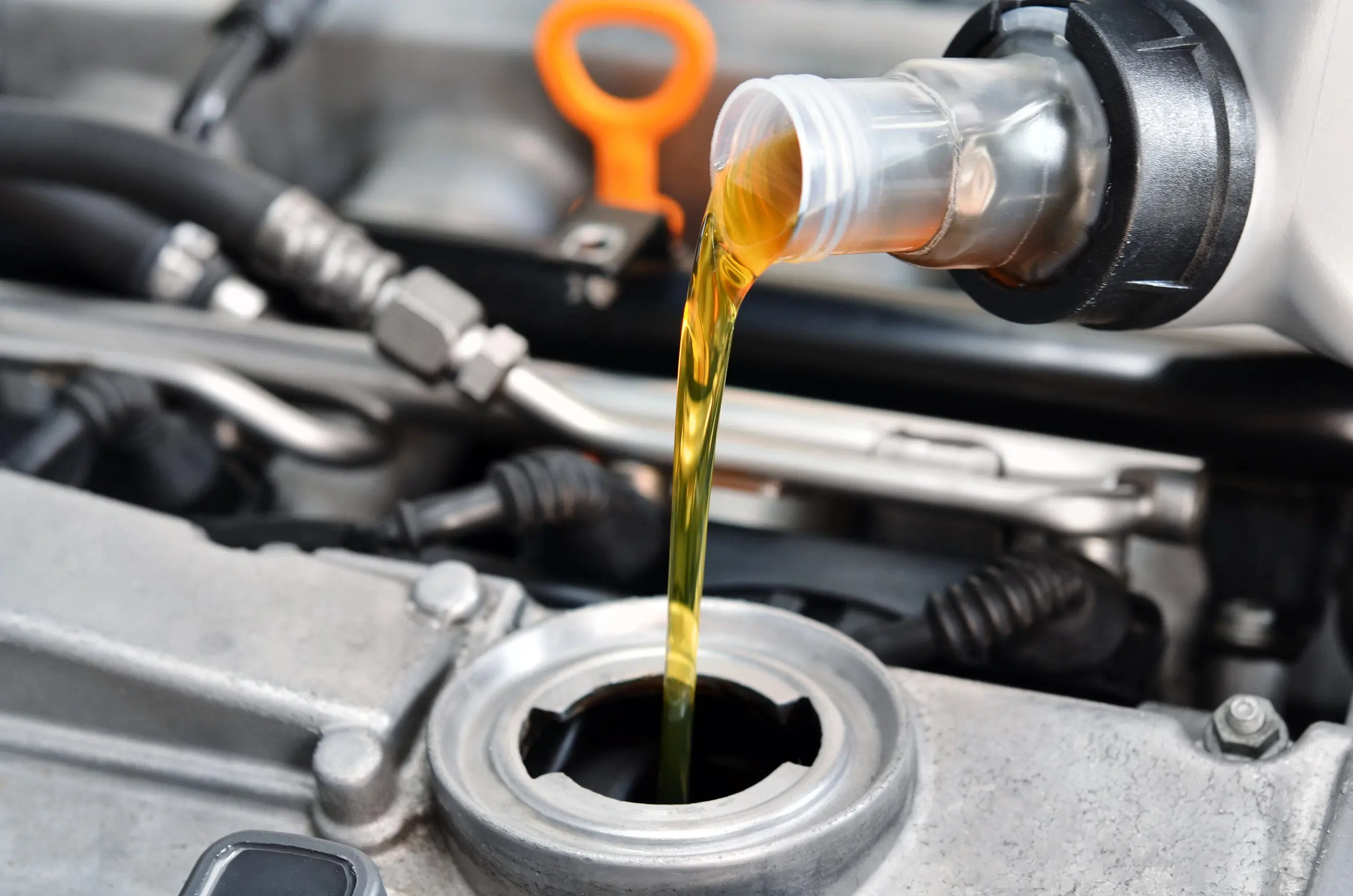Question: I attempted my first oil change by myself at home, and it didn’t go well. My dog came running into the garage and knocked into me, and I spilled oil on my engine. What should I do? Will the oil I spilled on my engine catch fire?
Answer:
If you fill your oil at home, sooner or later you’ll likely spill some on your engine. It’s not great, but as long as you take the time to clean it up properly, your engine should be fine.
Before you do anything at all, finish topping off your oil. If you clean first and then finish filling your oil, you could spill it again—meaning you’ll end up cleaning up the same mess twice.
How to clean an engine after an oil spill
Once you’ve finished filling the oil, you can start to tackle the mess:
- Grab rags or paper towels and wipe up as much oil as possible. Clean cloths may work better to absorb oil spills, but paper towels will do if that’s all you have. Be sure to get down into any nooks and crevices that oil might have seeped into.
- Check any electrical components, pulleys, and belts. Give special attention to these while you’re cleaning—oil can damage electrical systems or even cause a fire. Also, rubber belts and pulleys may slip out of place if they have oil on them, and the oil could cause them to degrade over time.
- Wipe up any oil under your car. Motor oil is an environmental contaminant, so check for any puddles under your vehicle.
- Spray degreaser on the area where the oil was spilled. Degreaser will help break down the oil so you can quickly and easily clean it. You can find degreaser at most auto parts or hardware stores.
- Rinse the oil off of the engine. Use a low-flow sprayer (like a pressure washer set to low) to carefully rinse away the degreaser. But be careful—oil can damage your engine’s electrical components, so be careful not to get water directly on the alternator or any electrical wires or connections.
- Let the engine air dry. If possible, leave the hood open to get better airflow while the engine dries.
Once your engine has finished drying, start up your car in a well-ventilated area or take it for a drive. You might hear the belts squeaking or squealing at first, smell burning oil, or see some smoke. This is just oil residue burning off as the engine heats up—if you cleaned up most of the oil, it should only take a few minutes for this to clear up.
If you see flames or excessive smoke, turn off your engine immediately. You may need to repeat the cleaning process, but it may be safest to take your car to a local mechanic for cleaning.
What happens if you spill oil on your engine and don’t clean it up?
Electrical systems and belts are your two biggest concerns here. Electrical systems can break down or catch fire if they’re contaminated with oil. Also, the serpentine belt can slip off while driving, potentially causing you to lose control of the vehicle.
Also, even though motor oil has an ignition point higher than most engine’s maximum temperatures, there’s a chance that spilled motor oil could potentially catch on fire as your engine heats up. To be safe, always clean up oil spills as soon as they happen.

Expert insurance writer and editor Amy Bobinger specializes in car repair, car maintenance, and car insurance. Amy is passionate about creating content that helps consumers navigate challenges related to car ownership and achieve financial success in areas relating to cars. Amy has over 10 years of writing and editing experience. After several years as a freelance writer, Amy spent four years as an editing fellow at WikiHow, where she co-authored over 600 articles on topics including car maintenance and home ownership. Since joining Jerry’s editorial team in 2022, Amy has edited over 2,500 articles on car insurance, state driving laws, and car repair and maintenance.

Giselle Gomez is an editor with over a decade of experience editing content across personal finance, education, travel, and sports. In editing for Jerry, Giselle’s focus is on making sure content is consumer and SEO-friendly and helping readers understand all things car ownership. In prior roles, she worked as a content strategist, syndication editor, and writer. Her work is featured in AP, NerdWallet.com, BestColleges.com, and more. Giselle holds a master’s degree from Arizona State University.








